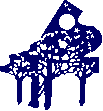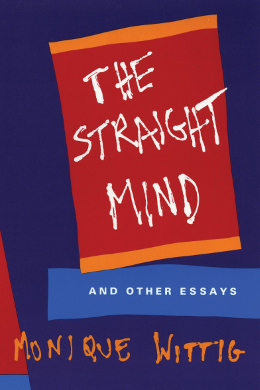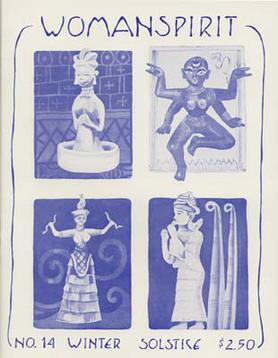Related Research Articles
Radical feminism is a perspective within feminism that calls for a radical re-ordering of society in which male supremacy is eliminated in all social and economic contexts, while recognizing that women's experiences are also affected by other social divisions such as in race, class, and sexual orientation. The ideology and movement emerged in the 1960s.

Matriarchy is a social system in which positions of dominance and privilege are held by women. In a broader sense it can also extend to moral authority, social privilege, and control of property. While those definitions apply in general English, definitions specific to anthropology and feminism differ in some respects.

The Michigan Womyn's Music Festival, often referred to as MWMF or Michfest, was a lesbian feminist women's music festival held annually from 1976 to 2015 in Oceana County, Michigan, on privately owned woodland near Hart Township referred to as "The Land" by Michfest organizers and attendees. The event was built, staffed, run, and attended exclusively by women, with girls, young boys and toddlers permitted.
Patrick Califia, formerly also known as Pat Califia and by the last name Califia-Rice, is an American writer of non-fiction essays about sexuality and of erotic fiction and poetry. Califia is a bisexual trans man. Prior to transitioning, Califia identified as a lesbian and wrote for many years a sex advice column for the gay men's leather magazine Drummer. His writings explore sexuality and gender identity, and have included lesbian erotica and works about BDSM subculture. Califia is a member of the third-wave feminism movement.

Lesbian feminism is a cultural movement and critical perspective that encourages women to focus their efforts, attentions, relationships, and activities towards their fellow women rather than men, and often advocates lesbianism as the logical result of feminism. Lesbian feminism was most influential in the 1970s and early 1980s, primarily in North America and Western Europe, but began in the late 1960s and arose out of dissatisfaction with the New Left, the Campaign for Homosexual Equality, sexism within the gay liberation movement, and homophobia within popular women's movements at the time. Many of the supporters of Lesbianism were actually women involved in gay liberation who were tired of the sexism and centering of gay men within the community and lesbian women in the mainstream women's movement who were tired of the homophobia involved in it.
Feminist separatism is the theory that feminist opposition to patriarchy can be achieved through women's separation from men. Much of the theorizing is based in lesbian feminism.

The Straight Mind and Other Essays is a 1992 collection of essays by Monique Wittig.
Women's music is a type of music base on the ideas of feminist separatism and lesbian-separatism, designed to inspire feminist consciousness, chiefly in Western popular music, to promote music "by women, for women, and about women".
Political lesbianism is a phenomenon within feminism, primarily second-wave feminism and radical feminism; it includes, but is not limited to, lesbian separatism. Political lesbianism asserts that sexual orientation is a political and feminist choice, and advocates lesbianism as a positive alternative to heterosexuality for women as part of the struggle against sexism.
Julie Elizabeth McCrossin is an Australian radio broadcaster, journalist, comedian, political commentator and activist for women's and gay rights. She is best known for her role as a team captain on the news-based comedy quiz show Good News Week between 1996 and 2000.
Radical lesbianism is a lesbian movement that challenges the status quo of heterosexuality and mainstream feminism. It arose in part because mainstream feminism did not actively include or fight for lesbian rights. The movement was started by lesbian feminist groups in the United States in the 1950s and 1960s. A Canadian movement followed in the 1970s, which added momentum. As it continued to gain popularity, radical lesbianism spread throughout Canada, the United States, and France. The French-based movement, Front des Lesbiennes Radicales, or FLR, organized in 1981 under the name Front des Lesbiennes Radicales. Other movements, such as Radicalesbians, have also stemmed off of the larger radical lesbianism movement. In addition to being associated with social movements, radical lesbianism also offers its own ideology, similar to how feminism functions in both capacities.
A relatively common motif in speculative fiction is the existence of single-gender worlds or single-sex societies. These fictional societies have long been one of the primary ways to explore implications of gender and gender-differences in science fiction and fantasy. Many of these predate a widespread distinction between gender and sex and conflate the two.
The Van Dykes were an itinerant band of lesbian separatist vegans, founded in 1977 in the United States by Heather Elizabeth and Ange Spalding. Members of the group identified as dykes and lived in vans, traveling throughout Canada, the United States, and Mexico, stopping only on womyn's land.
Womyn's land is an intentional community organised by lesbian separatists to establish counter-cultural, women-centred space, without the presence of men. These lands were the result of a social movement of the same name that developed in the 1970s in the United States, Australia, New Zealand, and western Europe. Many still exist today. Womyn's land-based communities and residents are loosely networked through social media; print publications such as newsletters; Maize: A Lesbian Country Magazine; Lesbian Natural Resources, a not-for-profit organisation that offers grants and resources; and regional and local gatherings.
Feminist businesses are companies established by activists involved in the feminist movement. Examples include feminist bookstores, feminist credit unions, feminist presses, feminist mail-order catalogs, and feminist restaurants. These businesses flourished as part of the second and third-waves of feminism in the 1970s, 1980s, and 1990s. Feminist entrepreneurs established organizations such as the Feminist Economic Alliance to advance their cause. Feminist entrepreneurs sought three primary goals: to disseminate their ideology through their businesses, to create public spaces for women and feminists, and to create jobs for women so that they did not have to depend on men financially. While they still exist today, the number of some feminist businesses, particularly women's bookstores, has declined precipitously since 2000.
Founded in 1975 Oregon Women's Land Trust is a 501(c)(3) membership organization that holds land for conservation and educational purposes in the U.S. state of Oregon. The trust owns 147 acres of land in Douglas County, referred to as OWL Farm, and the mission states that the Trust "is committed to ecologically sound preservation of land, and provides access to land and land wisdom for women."

WomanSpirit was a lesbian feminist quarterly founded by Ruth and Jean Mountaingrove and produced collectively near Wolf Creek, Oregon. It was the first American lesbian/feminist periodical to be dedicated to both feminism and spirituality. Many of the contributors to WomanSpirit were, or became, well known within the women's spirituality movement. It had 40 publications, covering topics such as ecology, goddess myths and rituals, feminist theory, and divination. Its submissions included articles, photos, letters, book reviews, artwork, and songs.

Gay separatism is the political belief in and advocacy for gay male separatism. Separatism for gay men has included explicit political calls for men-only spaces; the creation of communes for gay men; and the lived social practice of self-segregation in "gayborhoods."
References
- 1 2 3 4 5 6 7 Souter, Fenella (29 July 2019). "'No men, no meat, no machines': How a band of women tried to forge a female utopia". ABC Radio International . Retrieved 22 February 2020.
- ↑ Hall, Sand, ed. (2019). Shelters and Building: Stories of Women's Lands, Australia, Volume 2 (1st ed.). Shall Publishing. ISBN 978-0-9954267-1-9.
- 1 2 3 Meyering, Isobelle Barrett (May 2013). "'There must be a better way': motherhood and the dilemmas of feminist lifestyle change". Outskirts . 28. University of Western Australia. ISSN 1445-0445 . Retrieved 22 February 2020.
- ↑ "Amazon Acres". Trove . National Library of Australia . Retrieved 22 February 2020.
- ↑ Jackson, Amber; Higgs, Kerryn; Robinson, Sophie (2020). "no men, no meat, no machines". All About Women. Retrieved 22 February 2020. (Sydney Opera House event.)
- 1 2 Jennings, Rebecca. "'A thousand acres of red fertile earth': the rural and the urban in 1970s visions of lesbian nation". Queerbeyondlondon.com. Archived from the original on 20 December 2017. Retrieved 10 May 2021.
- 1 2 3 4 5 Jennings, Rebecca (2018). "Creating Feminist Culture: Australian Rural Lesbian-Separatist Communities in the 1970s and 1980s" (PDF). Journal of Women's History . 30, 2 (2): 88–111. doi:10.1353/jowh.2018.0015 – via UCL Discovery.
- 1 2 Higgs, Kerryn (4 March 2020). "My life with no men, no meat, no machines". SBS . Archived from the original on 10 May 2021. Retrieved 10 May 2021.
- ↑ Ward, Mary (16 February 2020). "For seven years, Amber lived in Australia's feminist utopia". The Sydney Morning Herald . Archived from the original on 16 February 2020. Retrieved 10 May 2021.